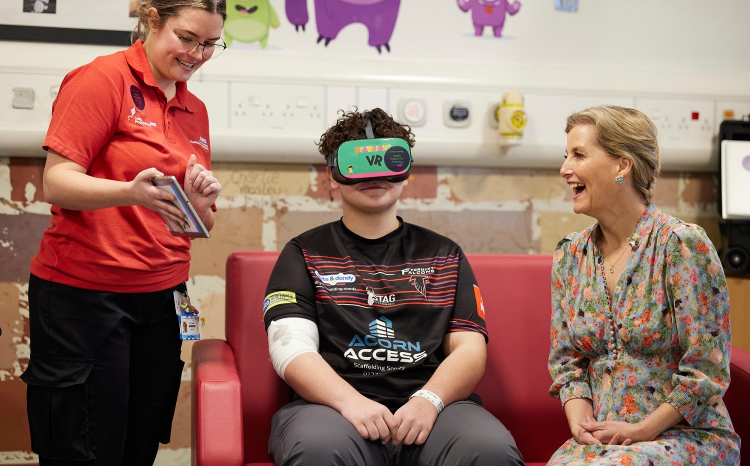Key Takeaways
- Leeds Children’s Hospital uses virtual reality (VR) to help reduce anxiety in young patients during medical procedures, eliminating the need for general anaesthesia.
- The service, funded by Leeds Hospitals Charity, now operates across 11 departments and has supported over 600 children since its trial began in 2021.
- Innovative VR content includes preparation videos and immersive environments, helping to transform patient experiences for complex procedures.
Enhancing Patient Experience with Virtual Reality
Leeds Children’s Hospital has implemented virtual reality (VR) technology to assist young patients in managing anxiety before medical procedures, allowing them to undergo treatments without general anaesthesia. The initiative, which began in 2021, has expanded significantly after positive evaluations, leading to a £500,000 funding boost from Leeds Hospitals Charity in 2025. This funding has enabled the hospital to utilize VR headsets seven days a week.
Initially supporting only four hospital areas, the VR service has now expanded to 11 departments, including oncology, dialysis, radiology, and neurology. Lucy Dickinson, a play specialist and VR lead at the hospital, emphasized that VR serves primarily as a distraction tool, aiding in various procedures ranging from blood tests to more invasive interventions like lumbar punctures and PICC line placements.
During a recent 20-month evaluation period, the service has assisted over 600 children, with monthly patient support rising from 25 to 40-50, achieving a success rate of 75-85%. The hospital currently has four VR headsets, with plans to add a fifth through contributions from Leeds Hospitals Charity, Starlight Charity, and private donations.
The VR experience utilizes DR.VR software from Rescape, a Welsh biotechnology firm, featuring three modes: relax, play, and explore. This allows children to engage in calming environments, educational content, or interactive games while remaining still for the duration of their procedures. In addition to the standard VR offerings, the Play Specialist Team has developed custom content, including six preparation videos designed to familiarize children with various hospital environments, such as MRI rooms and X-ray departments. These videos help alleviate anxiety by guiding children through what they can expect during their visits.
The introduction of a digital ‘VIP Pass’ system flags patients who exhibit procedure-related anxiety in their medical records, allowing clinicians to implement tailored, play-led treatment plans. This innovation has made a significant impact, according to Laura Whelan, head of children’s nursing at Leeds Teaching Hospitals NHS Trust. She remarked on the transformation seen in children who were previously afraid of needles, noting that they have undergone procedures without distress thanks to these sessions.
In parallel developments, St George’s University of London is leveraging VR technology to promote mental well-being among students. Collaborating with Phase Space Ltd, the university has developed VR sessions that incorporate hypnosis-based stress management techniques, aiming to alleviate stress and anxiety among its student body.
Overall, the expanded use of VR technology at Leeds Children’s Hospital exemplifies a commitment to improving patient care through innovative methods, creating a more positive environment for young patients undergoing essential medical procedures.
The content above is a summary. For more details, see the source article.















